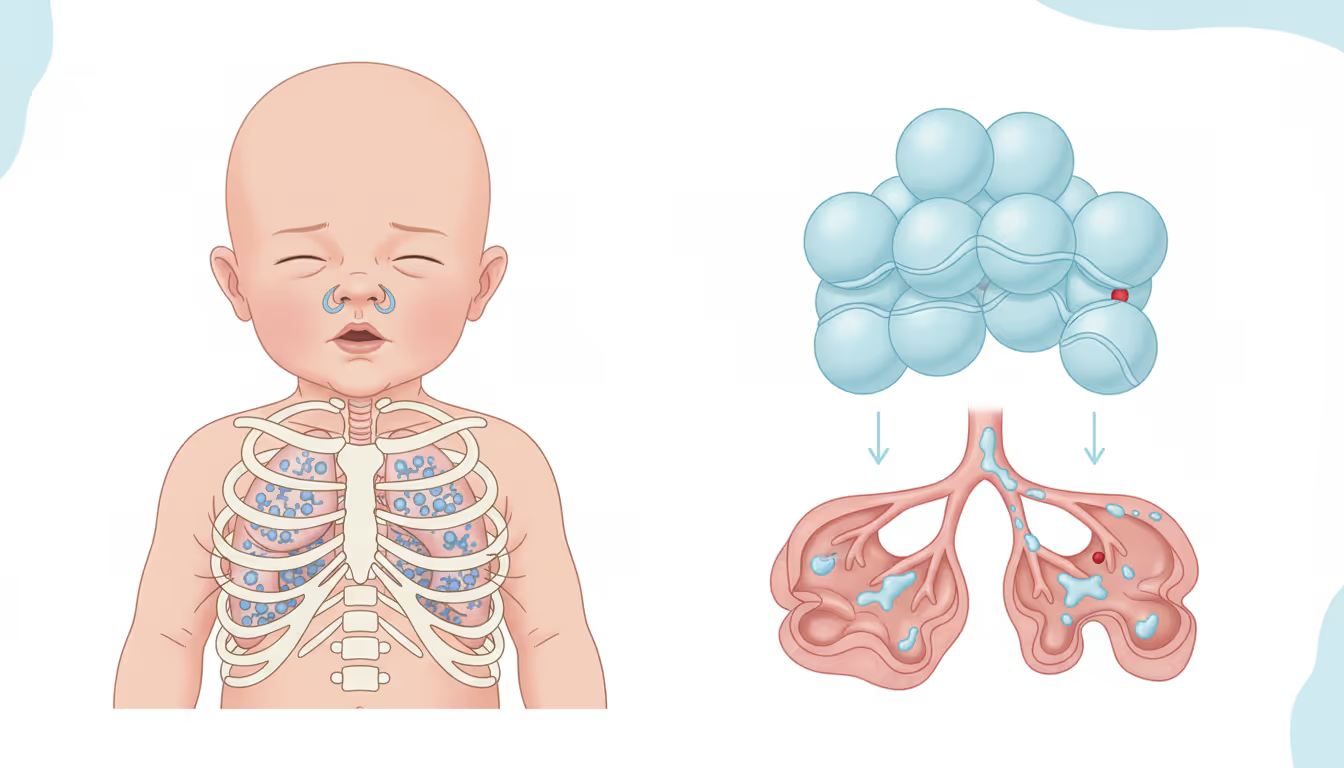
Respiratory distress syndrome (RDS), previously referred to as a condition of breathing difficulties in newborns, is primarily due to a lack of a specific molecule. This syndrome predominantly affects infants born before 37 weeks of pregnancy, with the risk increasing the more premature the baby is. It's also more common in babies born to mothers with diabetes.Surfactant, which is made up of phospholipids and lipoproteins, is produced by lung cells. It plays a crucial role in reducing surface tension at the air-fluid interface of the lung's water lining, where oxygen and carbon dioxide exchange occurs. Without adequate surfactant, the alveoli are prone to collapse, decreasing lung compliance and making it more challenging to inflate the lungs. Premature infants also have more pliable ribs, which can deform easily, leading to deep sternal retractions but poor air intake when compared to lung stiffness. This can result in widespread lung collapse, known as atelectasis.Newborns with RDS often exhibit rapid, labored breathing with grunting and retractions around the breastbone, along with nostril flaring, shortly after birth. These symptoms, along with lung collapse and respiratory failure, tend to worsen progressively. Some infants, especially those with extremely low birth weights (under 1000 grams), might not show signs of respiratory distress simply because their lungs are too rigid to initiate breathing at birth.The likelihood of developing RDS can be minimized by assessing fetal lung maturity to determine the best time for delivery. If premature delivery is unavoidable, administering betamethasone to the mother at least 24 hours before birth can stimulate fetal surfactant production, thereby reducing the risk or severity of RDS.Without intervention, severe RDS may lead to multiple complications or even death. However, with adequate support, the newborn can begin producing surfactant, and RDS typically resolves within four to five days. Recovery is often accelerated with the administration of pulmonary surfactant.




